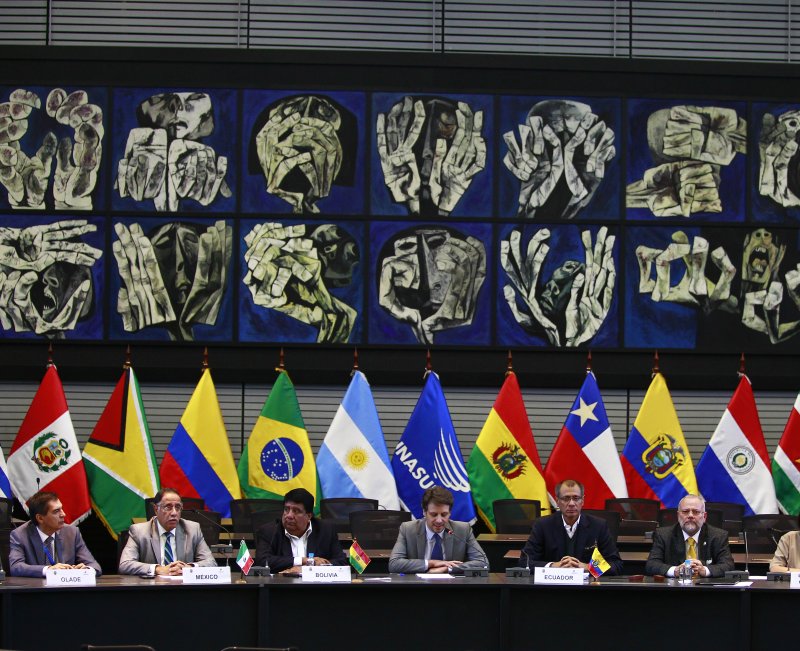Members of delegations from five countries of Latin American participate in a Unasur meeting in Quito in April 2016. On Wednesday, Ecuador said it is pulling out from the group and asking for the organization's headquarters back. File Photo by Jose Jacome/EPA EFE
March 14 (UPI) -- Ecuador, which houses the headquarters of the Union of South American Nations, announced its departure from the group and requested the return of the organization's main building.
Ecuador President Lenin Moreno said Wednesday night that his country requested the return of the Quito building that houses the organization, known as Unasur, which is valued at roughly $40 million, El Telegrafo reported.
Moreno blamed croneyism and a lack of progress for his nation's decision to leave Unasur and asked to take back its building.
"Ecuador has concluded that the conditions for Unasur to be able to work once again toward South American integration are lacking," Moreno said.
"Member states neither participate nor contribute," Moreno added. The organization, formed in 2008, never really took off because some presidents insisted "in naming friends to position in the organization," he said.
El Universo added that for the past two years the organization has lacked a general administration and personnel has steadily decreased.
According to the Unasur website, a predecessor organization was established during a 2004 regional summit in Lima. In 2008, Unasur was formed, with plans for a permanent headquarters in Quito and a parliament in Cochabamba, Bolivia, to establish a cohesive trade bloc and customs union in Latin America.
Governments in Argentina, Brazil, Chile, Colombia, Paraguay and Peru have in recent years seen representatives of center or right-leaning parties win most of the votes, which has contributed to a rift between South American nations.
Most of those countries have created the Group of Lima, which has held regular and frequent meetings, mainly to coordinate policies toward their interactions with Venezuela.
The Group of Lima nations, aligned with the United States, do not recognize Venezuelan President Nicolas Maduro as the country's legitimate ruler on grounds his re-election last year was in a controversial vote that lacked legality. However, Uruguay and Bolivia still recognize Maduro's presidency.
Unasur's website still lists a dozen countries as members.















